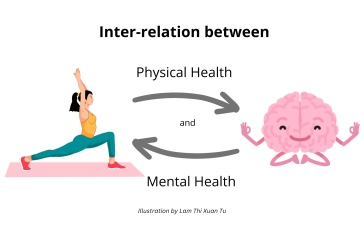Artificial Intelligence (AI) is revolutionizing various industries by introducing unprecedented efficiencies, insights, and capabilities. This article explores how AI is transforming three key sectors: healthcare, finance, and retail. Each sector has unique challenges and opportunities, and AI is playing a pivotal role in shaping their future.
AI in Healthcare
Diagnostics and Personalized Medicine
AI has significantly impacted healthcare, particularly in diagnostics and personalized medicine. Machine learning algorithms can analyze medical images with remarkable accuracy, often surpassing human capabilities. For instance, AI systems can detect anomalies in X-rays, MRIs, and CT scans, aiding in the early diagnosis of diseases like cancer. These systems learn from vast datasets, improving their diagnostic accuracy over time.
Personalized medicine is another area where AI is making strides. By analyzing genetic information, lifestyle factors, and other health data, AI can help develop individualized treatment plans. This approach ensures that patients receive therapies tailored to their specific needs, improving outcomes and reducing side effects.
Predictive Analytics and Preventive Care
Predictive analytics powered by AI can forecast disease outbreaks and patient readmissions, enabling healthcare providers to take proactive measures. For example, AI models can predict which patients are at risk of developing chronic conditions, allowing for early intervention and preventive care. This not only improves patient health but also reduces healthcare costs by minimizing hospital admissions and emergency room visits.
Administrative Efficiency
AI is streamlining administrative tasks in healthcare, allowing medical professionals to focus more on patient care. Natural language processing (NLP) algorithms can transcribe medical notes, handle billing, and manage patient records. This automation reduces the burden on healthcare staff and minimizes the risk of errors in administrative processes.+

AI in Finance
Risk Management and Fraud Detection
In the finance sector, AI is transforming risk management and fraud detection. Traditional methods of assessing risk and detecting fraud are often slow and prone to human error. AI, however, can analyze vast amounts of data in real-time, identifying patterns and anomalies that may indicate fraudulent activities.
Machine learning models can assess credit risk more accurately by evaluating a broader range of factors than traditional credit scoring systems. This enables financial institutions to make better lending decisions and reduce the likelihood of default.
Algorithmic Trading
Algorithmic trading, driven by AI, has revolutionized the stock market. AI algorithms can analyze market trends, news, and other relevant data to make trading decisions in milliseconds. This high-frequency trading can capitalize on market opportunities much faster than human traders, potentially leading to higher profits.
AI-driven trading systems can also help manage portfolios by automatically adjusting asset allocations based on market conditions. This dynamic approach to investment management can optimize returns while minimizing risks.
Customer Service and Personalization
AI is enhancing customer service in the finance industry through chatbots and virtual assistants. These AI-powered tools can handle a wide range of customer inquiries, from account balances to loan applications, providing quick and accurate responses. This improves customer satisfaction and reduces the workload on human customer service representatives.
Personalization is another key area where AI is making an impact. By analyzing customer data, AI can provide personalized financial advice and product recommendations. This tailored approach helps customers make better financial decisions and strengthens their relationship with financial institutions.
AI in Retail
Inventory Management and Supply Chain Optimization
AI is transforming inventory management and supply chain optimization in the retail sector. Machine learning algorithms can predict demand for products, helping retailers maintain optimal inventory levels. This reduces the risk of stockouts and overstock situations, ensuring that customers can find the products they want when they need them.
AI can also optimize supply chain operations by analyzing data from various sources, such as weather forecasts, transportation schedules, and market trends. This allows retailers to streamline their logistics, reduce costs, and improve delivery times.
Personalized Shopping Experiences
Personalization is a major trend in retail, and AI is at the forefront of this transformation. AI algorithms analyze customer behavior, preferences, and purchase history to provide personalized product recommendations. This not only enhances the shopping experience but also increases sales by suggesting items that customers are more likely to buy.
AI-powered chatbots and virtual assistants are also improving customer service in retail. These tools can answer customer inquiries, provide product information, and assist with online purchases, offering a seamless shopping experience.
Dynamic Pricing
AI enables retailers to implement dynamic pricing strategies, adjusting prices in real-time based on demand, competition, and other factors. This allows retailers to maximize their revenue and remain competitive in a fast-paced market. For example, e-commerce platforms can use AI to analyze customer data and market trends to determine the optimal price for each product.
Conclusion
The impact of AI on healthcare, finance, and retail is profound and far-reaching. In healthcare, AI is enhancing diagnostics, personalized medicine, predictive analytics, and administrative efficiency. In finance, AI is improving risk management, fraud detection, algorithmic trading, customer service, and personalization. In retail, AI is revolutionizing inventory management, supply chain optimization, personalized shopping experiences, and dynamic pricing.
As AI technology continues to evolve, its applications in these sectors will only expand, driving further innovation and improvements. Organizations that embrace AI will be better positioned to adapt to changing market conditions, meet customer needs, and achieve long-term success. The transformative power of AI is undeniable, and its potential to reshape industries is just beginning to be realized.






